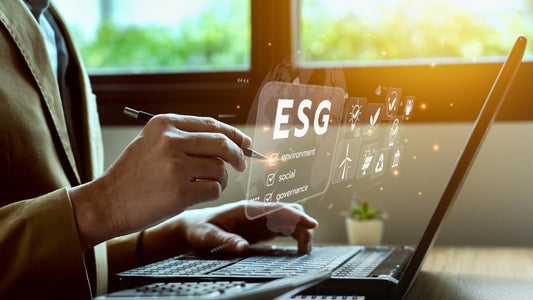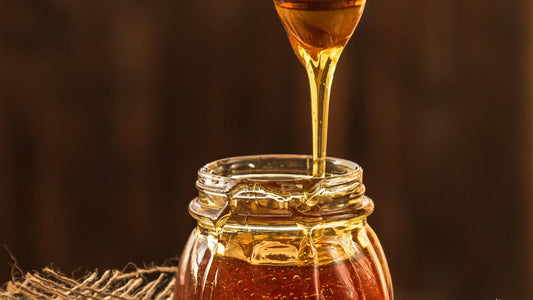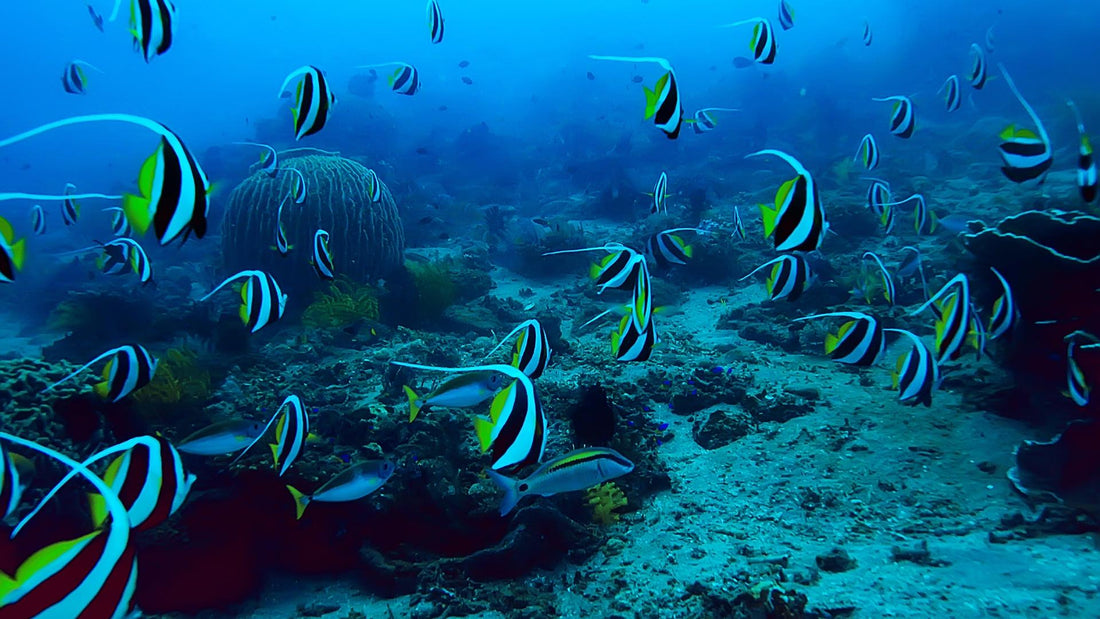
Marine Week: What Are the Dangers To The Beautiful Marine Life?
Share
Happy Marine Week! This week, we celebrate the rich marine life full of diverse animals, plants, and microorganisms. We owe countless things to our oceans, especially as the Earth’s waters and its inhabitants are in danger. Several factors impact the welfare of our oceans, including our actions and choices. Let's celebrate marine life this week together!
National Marine Week is celebrated in the UK between July 24 and August 8 each year. During this period, people from the UK participate in several activities to learn more about marine life. If you are or will be in the UK during this week and have not planned your activities yet, you can see some options here.
If you are reading the article from somewhere outside the UK, you may not have heard this week before since it is nationally celebrated. Wherever we are on Earth, we all benefit from the blessings of marine life. So, let’s celebrate the week together! There may not be any organizations in our region. Yet, we can still explore the topic in other ways: engaging with marine life by reading articles, watching documentaries, and observing sea life if there is any nearby.
For the adventurous souls exploring our planet's wonders, understanding and respecting marine life is paramount. Let's ensure our adventures protect the incredible marine life that makes these coastal paradises so enchanting. Knowing how to travel sustainably and respecting wildlife, including marine life, is essential. Let's dive into why...
Marine Life for Life
The Earth accounts for 71 per cent of water, and most of it is covered by oceans. They are the biggest source of oxygen and a significant CO2 reducer. As we face the reality of climate change, their significance should never be forgotten for our existence. Climate change already negatively impacts marine life; therefore, learning more about the issue is vital not to worsen the situation. We know that humans are responsible for changing order in the environment, which impacts all lives, and we are not exempt from this either. The UN Environment's informative page explains why the blue ecosystem matters in detail.
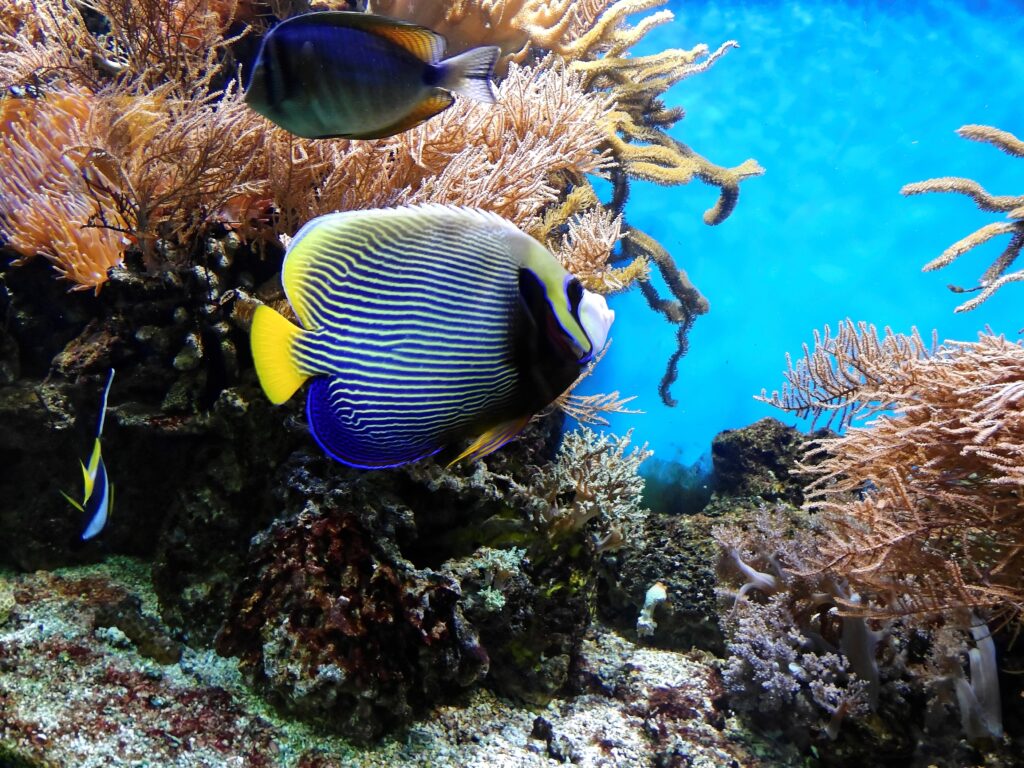
We are required to take care of one of the most prominent contributors to our lives on Earth! Without knowing what the reasons are that harm marine ecosystems and without being aware of if we somehow partake in them, we may not actively protect them.
"About half of Earth’s oxygen comes from the ocean; about the same amount is consumed by marine life."
National Oceanic and Atmospheric Administration
Marine life is a food resource and livelihood for many people, sustaining countless communities. However, the increasing global demand for seafood has put immense pressure on our oceans. Unsustainable fishing practices, driven by the need to meet market demands, seriously threaten marine biodiversity and the livelihoods of those dependent on these ecosystems.
Fishing, Fishing and Fishing
Overfishing is a real threat to our oceans that causes serious damage to aquatic life. Balance in our oceans is necessary, but we are taking much more from our water than it can handle, disrupting this delicate balance. A healthy life circle is a vital part of this; the relationship between prey and predators is the essence of the food web in our oceans. Unfortunately, overfishing causes a decrease in fish biomass and marine biodiversity due to the emerging disruption.

The Lungs of the Ocean
Beautiful and colourful coral reefs are the greatest habitat for sea species; it is estimated that one-quarter of sea life exists around the reefs. Their inhabitants help coral reefs to grow and become rainforests underwater, which also host algae as half of the photosynthesis producers of our Earth. There is a symbiotic relationship between the coral reefs and algae, which keeps our oceans and Earth healthy, but overfishing interferes here as well. Since fishes are a substantial part of coral reef growth, their uncontrolled removal from the environment causes negativity.
The decrease in the number of fish, especially those that feed on algae, causes a parallel increase in algae. This negatively affects the symbiotic relationship between coral reefs and algae, damaging marine life. Briefly, the whole system that depends on each other is broken.
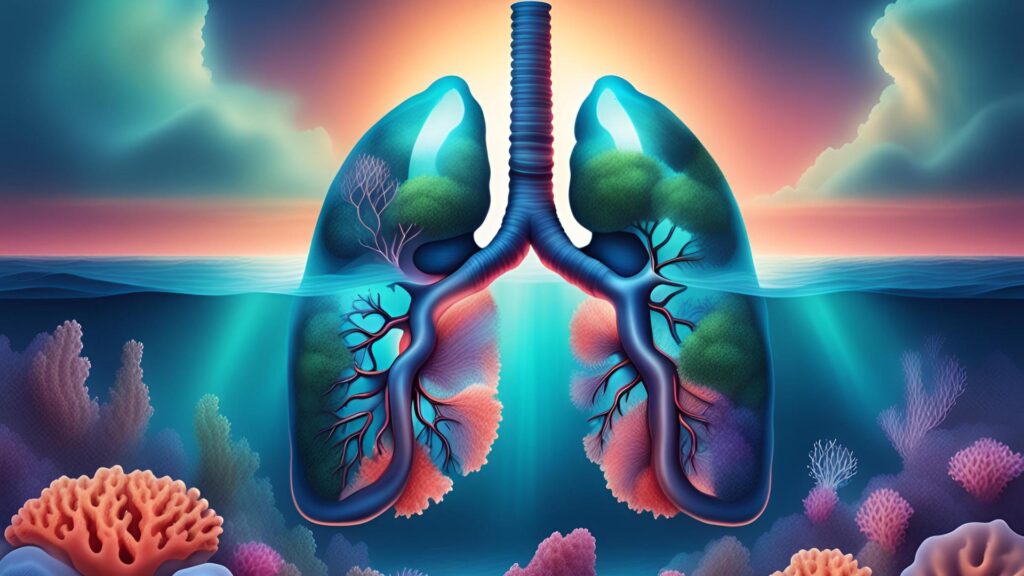
Sadly, we play the leading role in marine ecosystem deterioration because of our love for seafood. Overfishing, driven by high consumer demand, is a major threat to ocean health. But there's hope! To protect our oceans and the life underwater, we need to implement sustainable practices, such as protecting coral reefs rich in biodiversity. Without overfishing, our oceans will have the chance to recover, which can lead to more resilient oceans and marine life.
Bycatch Threatens Marine Biodiversity
There are hidden threats, especially with overfishing. Bycatch is one such threat that occurs as a result of overfishing. The use of huge nets to catch numerous fishes at once usually leads to bycatch of other sea animals, including whales, sharks, turtles, dolphins, and many others. Bycatch means accidental catch, but everyone knows that commercial enormous nets take whatever is in the sea. After the animals are caught, even their release ends with death or severe injuries of sea animals.
Some brands label their canned tuna as dolphin-free, meaning that they have not harmed any dolphin during their fishing processes. Is that real? About the major US tuna brands, it was claimed that they mislead their customers with false statements, although their fishing practices are not safe for mammals. As we know from greenwashing, being suspicious about the company’s statements is better for ethical decisions.
We all prioritize healthy eating, but what if we could extend that focus to the health of our planet? By considering sustainable seafood options, we can support ocean ecosystems and our own well-being.
Fish Farms: Aquaculture
However, sustainable seafood goes beyond wild-caught fish. Aquaculture is a relatively recent way to produce fish and other sea "products" mainly for human consumption. Although it is generally promoted by highlighting its positive impact on sustainable development, negative repercussions can lead to serious catastrophes. Before focusing on what it led to in terms of marine life, we should give further details about the process.
There is not a single application in aquaculture; closed, semi-closed, and open systems are in use. Specifically, the methods that end up with water exchange between farms and the natural water environment have the biggest responsibilities in environmental and marine life damage. In a limited part of the aquatic environments, which are usually unhealthy, a huge number of fish are cultivated. What happens within those "cages"?

Farmers use chemicals and antibiotics to prevent diseases because if an illness occurs, it may infect other fish due to the crowd. It is hard to keep the net environment clean and safe; waste emerges, contaminates water, and threatens the health of all water ecosystems. It is also possible for fish cultivated in aquaculture to escape. Then, their reproduction may increase genetically disadvantaged populations. Many fish deaths occur worldwide in fish farms as well.
All these are the environmental costs of aquaculture. Some countries have regulations in aqua farming for better implementation; however, unhealthy conditions are still applicable in many countries that provide food for the market. Food safety and the risk to human health emerge as another concern.
At the same time, there are other controversial aspects of this system, which restrict the freedom of sea creatures and consider them as a production material with "bad treatment". Should the right to live in favourable conditions be exclusive to us only?
What To Do For Marine Life Protection?
The fishing industry produces for us. Experts suggest that strictly controlled and regulated systems can minimize the above-mentioned environmental impacts; even so, we should question why we need this much production that goes beyond the natural flow of the system. Should we leave the fate of our health and environment to the mercy of those who enforce these fishing practices?
The topic is comprehensive, and we tried to cover the most relevant issues regarding threats to marine life. But you can watch the documentary "Seaspiracy" to learn more about the reality of the fishing industry.
If our fish consumption harms the environment, I want to raise a question: Why not explore delicious and sustainable ways to get our protein that does no harm to marine life? We have only one planet! If our habits or actions somehow cause undesirable impacts, maybe it is time to think of alternatives.
This Marine Week, let's explore ways to nourish ourselves and protect our oceans!
Here is some inspiration from us:

Article by Merve Kuloglu. I love nature and its vibrant colours. My goal is to understand and embrace all life, present and future, beyond just humanity. Guided by the principle of sustainability, I integrate it with my background in psychology to foster a more harmonious world.

